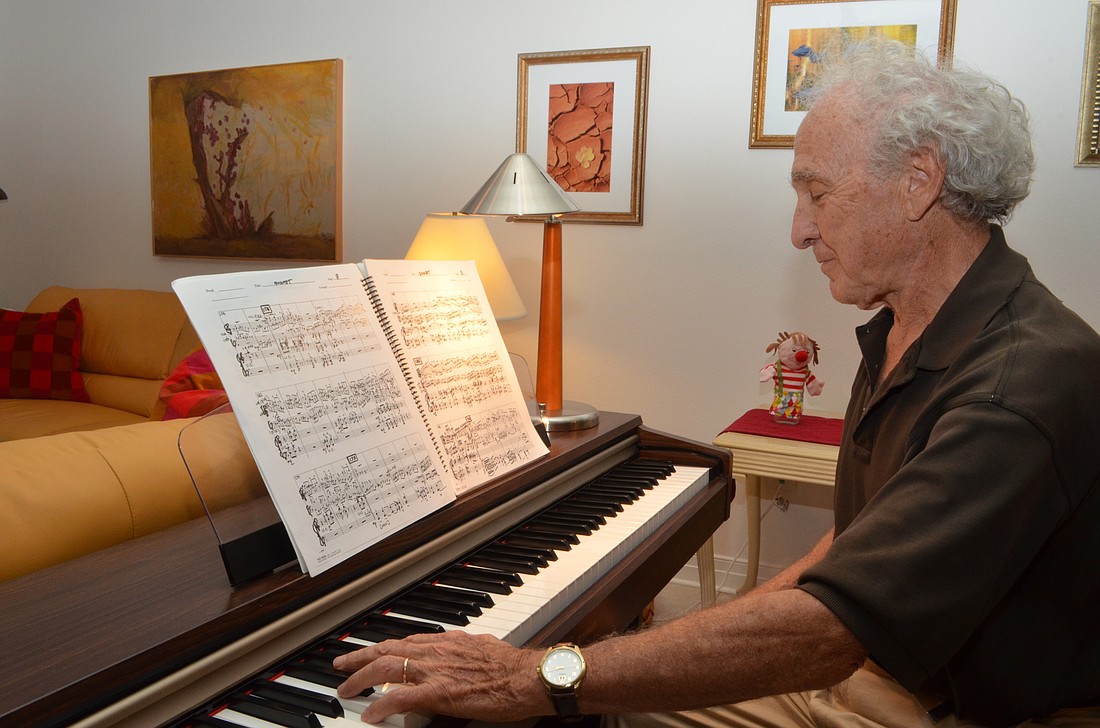- April 19, 2024
-
-
Loading

Loading

Jerry Bilik has never been a fan of modern classical music. In his opinion, at the start of the 20th century, composers stopped writing for their audience, and started writing for themselves and other experts. In an effort to be more innovative, composers strayed from the traditional, sweeping symphonies listeners loved and gravitated toward more daring, dissonant sounds.
In the mid ’60s, while pursuing his master’s degree in composition at the University of Michigan, Bilik was so tired of the trend that, in an ironic protest, he wrote his thesis symphony to include every dissonant phrase and note combination he could think of.
It won the college’s prize for best student composition.
After he graduation, he made a vow: any music he wrote would be for the listeners’ ears — not for music experts.
“I never question the audience,” says Bilik. “Ultimately, the music is for the listener, and not the composer. If the listeners don’t enjoy it, then the composer has failed.”
His newest work, “Symphony in M-L,” upholds that vow. The world-premiere symphony is the opening piece in the Sarasota Orchestra’s second Masterworks program of the season. Running Dec. 4 through 6 at the Van Wezel Performing Arts Hall, Bilik hopes his symphony will not only appeal to listeners, but he also hopes it will help bring classical music back into the cultural mainstream.
Unlike most works written today, Bilik’s doesn’t sound like the music of the 21st century. In fact, he doesn’t even want “Symphony in M-L” to sound like it’s from the 20th century.
“You have all this music that people love, that basically spans from the 17th century all the way up to the end of the 19th century, and then it suddenly stops,” he says. “Isn’t it curious that we live in a time without one universally recognized master composer? When you listen to classical radio stations like WSMR, they hardly play any classical music from the 20th century. It just isn’t popular.”
Working from his keyboard in his living room in Pelican Cove, which overlooks Little Sarasota Bay, Bilik says he’s found a solution that will satisfy both listeners and composers: his symphony’s titular modus lascivus.
Modus lascivus is a compositional style of practice Bilik learned from viola player, composer and influential teacher Tibor Serly in the mid-1960s. The composition system is based around the C-major scale and built on the chord outline of C-E-G-B-D-F-A. Bilik says it affords composers 82 different tertian chord combinations, allowing them the freedom to be innovative in writing without losing the classical sounds of the past.
Over the last 50 years, Bilik has been building toward “Symphony in M-L.” He began with simple etudes and short phrases, getting used to writing in the language. He cracked the musical code on a larger scale with the premiere of his “String Quartet in M-L,” which premiered at the LaMusica Festival in April. Now, he’s finally ready to debut the three-movement symphony.
Although he’s arranged and written original music his whole life and has worked with some of the best musicians in the world while recording in Hollywood and Los Angeles, Bilik is still a little anxious when premiering a new work.
“I’m building a world when I’m writing at the piano,” he says. “We’re sculptors in time, and you’re very exposed when you’re writing a new piece. You’re out there with your underwear on.”
No matter audience’s response on Dec. 4, Bilik is ecstatic every time he gets to take a group of strangers on a musical journey.
“We can’t see music, and it’s difficult to express, but when 2,000 people in the Van Wezel can share the same emotional ride through my music, that’s accomplishing something.”